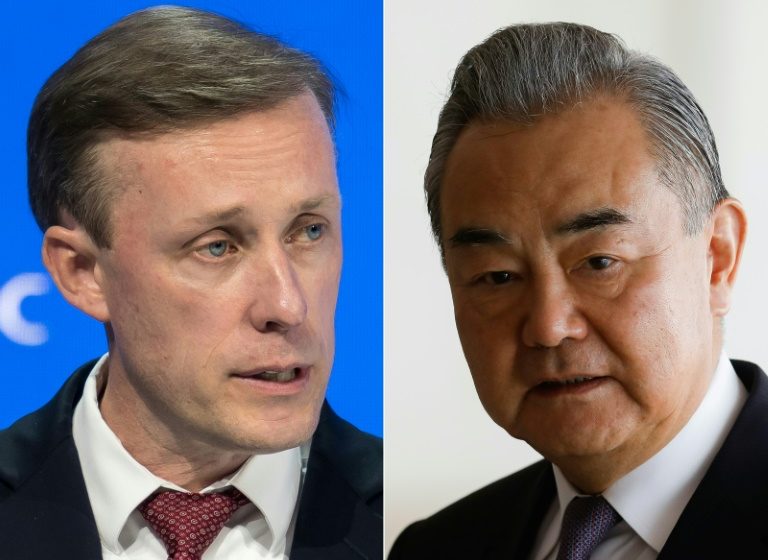China, US say talks in Bangkok ‘candid, substantive’

Beijing and Washington have clashed in recent years on flashpoint issues from technology and trade to human rights, Taiwan and the South China Sea
Washington – China’s top diplomat Wang Yi and US National Security Advisor Jake Sullivan held “candid, substantive” talks in Thailand’s capital Bangkok, focusing on the sensitive issues of Taiwan and the attacks in the Red Sea by Huthi rebels, officials said Saturday.
The talks, which lasted some 12 hours over two days, are expected to pave the way for a phone call between presidents Xi Jinping and Joe Biden in the spring, according to a senior White House official.
Beijing and Washington have clashed in recent years on flashpoint issues from technology and trade to human rights, as well as over the self-ruled island of Taiwan and competing claims in the South China Sea.
Relations have stabilized somewhat since Biden met Xi in San Francisco in November for talks that both sides described as a qualified success.
Wang and Sullivan “had candid, substantive and fruitful strategic communication on implementing the consensus reached at the San Francisco meeting… and on properly handling important and sensitive issues in China-US relations,” said a statement on China’s foreign ministry website released Saturday.
Echoing the Chinese side’s description of the talks, the White House added that the meeting was “part of the effort to maintain open lines of communication and responsibly manage competition in the relationship” between the two countries.
– Iran –
In Bangkok, Sullivan asked Yi to press Tehran for an end to attacks on Red Sea shipping carried out by Yemen’s Huthi rebels, said the White House official, speaking on condition of anonymity.
“Mr. Sullivan raised the importance of Beijing using (its) leverage with Iran to call for an end, and bring an end” to the attacks, said the official.
She added: “Chinese are telling us directly that they are raising it with Iran. But you know, I think we’re looking to actually (see) facts on the ground, and those attacks seem to be continuing.”
Given Beijing’s alliance with Pyongyang, Sullivan also raised North Korea’s recent weapons tests as well as its deepening ties with Moscow.
“I know we are deeply concerned about the recent testing of weapons, we are deeply concerned about the growing relationship between Russia and the DPRK and what that might mean for Mr. Kim’s intentions,” the White House official said, referring to North Korean leader Kim Jong Un.
The nuclear-armed state has accelerated its weapons testing and threats toward Seoul in recent months and has transferred arms to Russia for its war in Ukraine.
– Taiwan –
The two powers recently butted heads again over self-ruled Taiwan, which China claims as its territory, and where elections were held this month.
The Democratic Progressive Party, which rejects China’s claim to the island, secured a third term.
In the run-up to the poll, Chinese officials slammed president-elect Lai Ching-te as a dangerous separatist who would take Taiwan down the “evil path” of independence.
This week, two US lawmakers met Lai to reaffirm Washington’s support for Taiwan.
Biden had sent an unofficial delegation there to congratulate Lai shortly after the vote.
During the latest talks, Wang stressed that Taiwan was “China’s internal affair, and the regional election in Taiwan cannot change the basic reality that Taiwan is part of China,” according to the foreign ministry.
“The biggest risk to peace and stability across the Taiwan Strait is the so-called ‘Taiwan independence’ movement. The biggest challenge to China-US relations is also the ‘Taiwan independence’ movement,” it added.
Sullivan “underscored the importance of maintaining peace and stability across the Taiwan Strait,” according to the White House, which did not elaborate further.
The two-day talks also addressed the topics of the Middle East, Ukraine, the South China Sea and other international issues, both sides said.
They agreed to launch a joint working group on anti-drug cooperation, as well as set up an intergovernmental dialogue on artificial intelligence in the spring.
The two men “recognized recent progress in resuming military-to-military communication and noted the importance of maintaining these channels,” the White House said.
